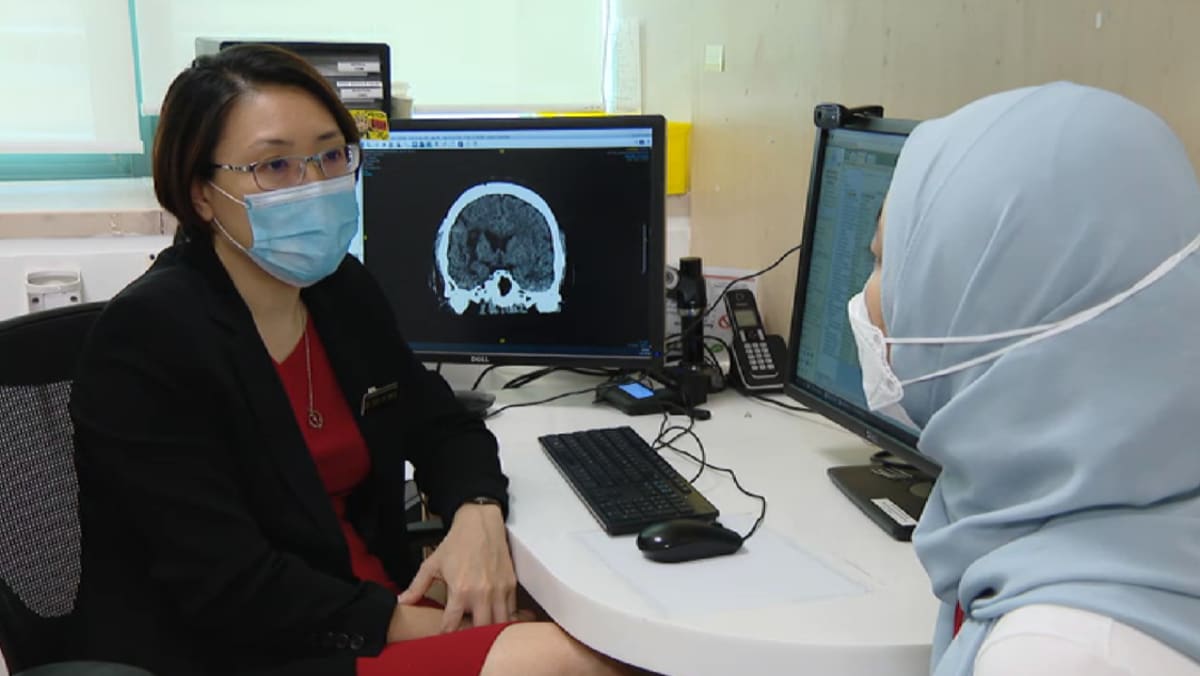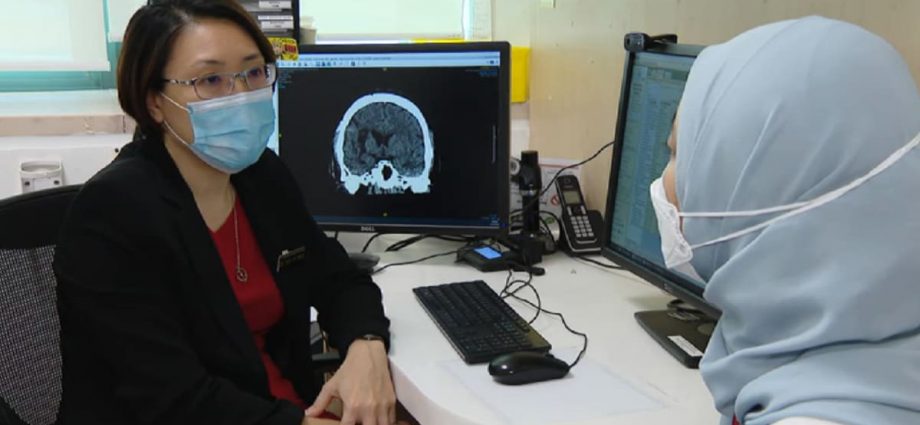
The results have been “very encouraging and promising”, said Adjunct Assistant Professor Chan Lai Gwen, a senior consultant at TTSH’s department of psychiatry.
Patients who underwent the CLIMB model of care were three times more likely to be alive, or in better physical and psychological health conditions, at five or more years after their stroke, she said.
MENTAL HEALTH JUST AS IMPORTANT DURING RECOVERY
Post-stroke depression (PSD) is a clinical depression that arises soon after a stroke and is partly attributed to the damage that the stroke has caused to the brain.
Mental well-being is just as important as physical recovery, as depression could hinder the recovery process and increase the risks of a recurrence, said Dr Chan, who is also director of the CLIMB programme.
“Having post-stroke depression increases a person’s risks of strokes in the future and even increases the risks of death,” she said. “More recently, we (also know) that patients do want to have some kind of psychological support, regardless of whether they have depression.”
A study by TTSH involving about 1,700 stroke patients revealed that 20 to 25 per cent have depression while they were hospitalised. One reason has been attributed to the lack of mental health professionals the patients could talk to.
STROKE PATIENTS WANT PSYCHOLOGICAL SUPPORT
Mr Muhammad said that he, and other patients like himself, found it difficult to talk about their problems to family members, as they did not want to worry them.
“Lots of stroke patients need somebody to talk to (outside of their families). Because sometimes they hide their feelings as they don’t want their family members to be sad. So when they open up to other people, those who are trained to talk to (patients), it’s a better choice,” Mr Muhammad said.

